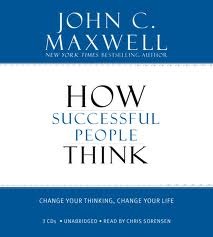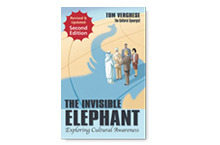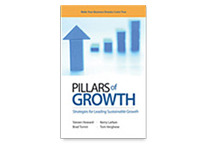 |
| THE CULTURAL SYNERGIST |

Last week, I was in the mountains of Utah, USA working with a client on a global leadership development program. It is a 9-month program that has week long intensives every 3 months. Week 1 is held in China, week 2 in the USA and week 3 is in Sweden. At the conclusion of week 3 action learning groups present their final projects to the executive team. If you would like to read or follow our Cultural Intelligence Blog go to:
http://culturalsynergies.wordpress.com Best Wishes Tom Verghese Send to Friend |
||||
| LEADERSHIP PHILOSOPHIES IN DIFFERENT CULTURES | ||||
 |
||||
|
|
I picked this book up this interactive workbook at the airport recently. �How Successful People Think� is a book that you can dip in and out of if you don�t have time to read it from cover to cover. The workbook is full of interactive questions and space for readers to provide answers, as well as new material for readers to assess their current thinking. It guides readers in applying the lessons that they have learned. Maxwell based �How Successful People Think� on his studies and analysis of successful people and how they think. The premise being that the key to success is in the thought processes - how we think. The book discusses 11 different types of thinking processes that good thinkers exhibit and provides practical suggestions of how these techniques can be learned. He talks about big picture thinkers, to creative and possibility thinkers to bottom-line thinkers, what they entail and how to master these skills. One of the appeals that this had for me were his discussions around working with ambiguity, in unfamiliar terrains and the importance of listening, as these are all attributes of cultural intelligence. The workbook is a great follow on that provides some challenging questions and an opportunity to engage in a series of exercises and critical thinking. |
|||||
RECOMMENDED BOOK: " How Successful People Think: Change your Thinking, Change Your Life." By John C Maxwell (2009). |
||||||
 |
||||||
|
|
RESOURCES 'Raising Your Cultural IQ - DVD and CD 'Raising Your Cultural IQ' explores the issues around culture, the challenges that culture can pose and provides some great strategies on how to leverage on cultural differences and similarities. 'The Invisible Elephant - Exploring Cultural Awareness' Book testimonial by Asma Ghabshi Visit our store here
|
|
 |
||
 |
||
 |
||
 |
|